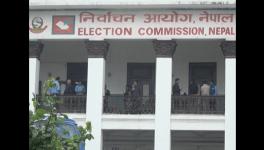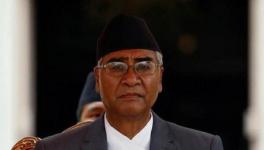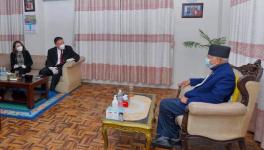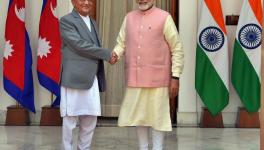Nepal Votes to Elect New Parliament and Provincial Assemblies, Counting to Start Tonight
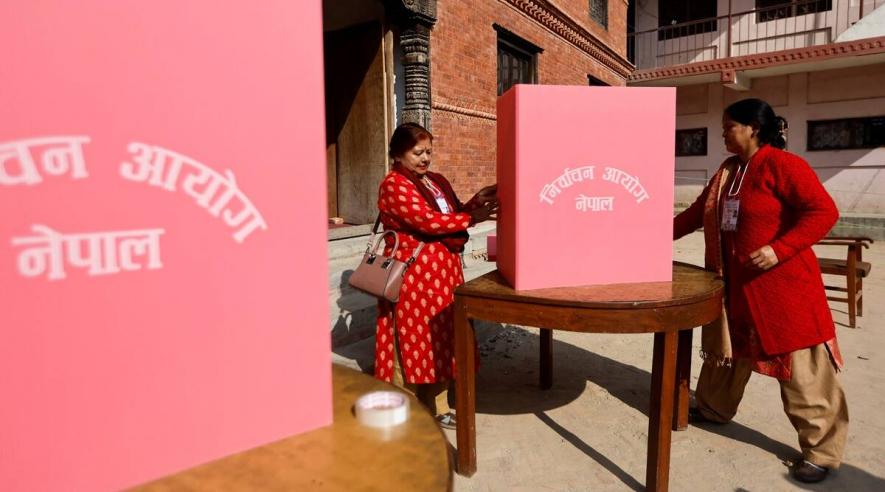
Image credit: The Indian Express
Millions of Nepalese began voting on Sunday to elect a new parliament and provincial assemblies amid tight security, hoping to end the political instability that has plagued the country for more than a decade and impeded growth.
The polling started at 7 am local time at over 22,000 polling centres and will close at 5 pm.
The counting of votes will begin from 9 pm on Sunday amid tight security, Chief Election Commissioner Dinesh Kumar Thapaliya said.
Speaking to the media after voting from a polling station in Bhaktapur, Thapaliya said the counting will start at 9 pm today after collecting all the ballot boxes.
Thapaliya said the commission would announce all the first-past-the-post results in the next eight days while the results of proportional representation elections would be announced by December 8.
More than 17.9 million eligible voters will elect a 275-member House of Representatives.
Out of a total of 275 Members of Parliament, 165 will be elected through direct voting, while the remaining 110 will be elected through a proportional electoral system.
At the same time, voters will also choose representatives to seven provincial assemblies.
Out of a total of 550 members of the provincial assemblies, 330 will be elected directly and 220 will be elected through the proportional method.
Political observers closely watching the elections have predicted a hung parliament and a government that is unlikely to provide the required political stability in Nepal.
Political instability has been a recurrent feature of Nepal's Parliament since the end of the decade-long Maoist insurgency, and no prime minister has served a full term after the civil war ended in 2006.
The frequent changes and fighting among parties have been blamed for the country's slow economic growth.
There are two major political alliances contesting the polls -- the ruling Nepali Congress-led democratic and leftist alliance and the CPN-UML-led leftist and pro-Hindu, pro-monarchy alliance.
Nepali Congress led by Prime Minister Sher Bahadur Deuba, 76, has formed an electoral alliance with former Maoist guerrilla leader Pushpa Kamal Dahal ‘Prachanda’, 67, against former premier K P Sharma Oli, 70.
The Nepali Congress-led ruling alliance includes CPN-Maoist Centre, CPN-Unified Socialist, and Madhes-based Loktantrik Samajwadi Party while the CPN-UML-led alliance includes pro-Hindu Rastriya Prajatantra Party and Madhes-based Janata Samajwadi Party.
The next government will face challenges of keeping a stable political administration, reviving the tourism industry and balancing ties with neighbours -- China and India.
Out of a total of 2,412 candidates contesting the election for federal Parliament, 867 are independents.
Among the major political parties, the CPN-UML has fielded 141 candidates while the Nepali Congress and CPN-Maoist Centre have fielded 91 and 46 candidates respectively.Security has been stepped up in all 77 districts across the country with air-patrolling around polling stations and closing of international borders for 72 hours.
Get the latest reports & analysis with people's perspective on Protests, movements & deep analytical videos, discussions of the current affairs in your Telegram app. Subscribe to NewsClick's Telegram channel & get Real-Time updates on stories, as they get published on our website.









